Krugman's column today revisits Barack Obama's "bitter" remarks about small-town stereotypes with facts and figures.
Mr. Obama’s comments combined assertions about economics, sociology and voting behavior. In each case, his assertion was mostly if not entirely wrong.
First, Krugman examines the economics, which exposed how Obama's claim was "deeply misleading." (The numbers.) Gotta agree with this advice: "But if I were a Democratic Party elder, I’d urge Mr. Obama to stop blurring the distinction between Clinton-era prosperity and Bush-era economic distress."
On sociology, the operative word is "cling," not "bitter":
Does economic hardship drive people to seek solace in firearms, God and xenophobia?
It’s true that people in poor states are more likely to attend church regularly than residents of rich states. This might seem to indicate that faith is indeed a response to economic adversity.
But this result largely reflects the fact that southern states are both church-going and poor; some poor states outside the South, like Maine and Montana, are actually less religious than Connecticut. Furthermore, within poor states, people with low incomes are actually less likely to attend church than those with high incomes. (The correlation runs the opposite way in rich states.)
Over all, none of this suggests that people turn to God out of economic frustration.
Finally, Mr. Obama, in later clarifying remarks, declared that the people he’s talking about “don’t vote on economic issues,” and are motivated instead by things like guns and gay marriage.
That’s a political theory made famous by Thomas Frank’s “What’s the Matter With Kansas?” According to this theory, “values” issues lead working-class Americans to act against their own interests by voting Republican. Mr. Obama seemed to suggest that’s also why they support Hillary Clinton. [Emphasis added.]
Problem is Frank was "mostly" incorrect. The evidence shows:
...small-town, working-class Americans are actually less likely than affluent metropolitan residents to vote on the basis of religion and social values. Nor have working-class voters trended Republican over time; on the contrary, Democrats do better with these voters now than they did in the 1960s.
It’s true that Americans who attend church regularly are more likely to vote Republican. But contrary to the stereotype, this relationship is weak at low incomes but strong among high-income voters. That is, to the extent that religion helps the G.O.P., it’s not by convincing the working class to vote against its own interests, but by producing supermajorities among the evangelical affluent. [Emphasis added.]
The reason, Krugman explains, that Republicans win is because " 'the shift of the Solid South from Democratic to Republican control in the wake of the civil rights movement' explains all — literally all — of the Republican success story."
Living in the South since the early 1970s, I have witnessed the transition. Anyone who's studied migrant patterns knows that the poor states of the South have been booming with an in-flux of new residents headed for white-collar professional jobs boosted by corporate relocations. A major hub, Atlanta, for example, has ranked third for Fortune 500 headquarters nationally for the sixth year in a row, up from its former fourth place position. In the 1990s, the Atlanta MSA, America's ninth largest metropolitan statistical area, grew at a rate of 100,000 newcomers per year over the entire decade and continues to swell in suburban growth deep into exurbia. The greater metro's demographics, particularly in the sprawling burbs, is highly-affluent, well-educated, and upwardly mobile, plus the city hosts dozens of evangelical megachurches. Birmingham, AL, is another professional boomtown as is Raleigh-Durham and Charlotte, NC. I don't want to digress into a socio-economic analysis of the South, but I can personally testify--living amongst its wealthy, church-going Republicans, and having grown up in a rich northern state from a family of poor evangelical Democrats--that Krugman is correct.
He concludes with a relevant point from Frank's book, which issued:
...a blistering attack on Democrats who cater to “affluent, white-collar professionals who are liberal on social issues” while “dropping the class language that once distinguished them sharply from Republicans.” Doesn’t this sound a bit like the Obama campaign?
Anyway, the important point is that working-class Americans do vote on economic issues — and can be swayed by a politician who offers real answers to their problems.
And one more thing: let’s hope that once Mr. Obama is no longer running against someone named Clinton, he’ll stop denigrating the very good economic record of the only Democratic administration most Americans remember.
Are you listening Howard Dean? Trashing the Clintons isn't smart during these troubled economic times and I'm willing to bet that a ticket with Candidate Obama and without Candidate Clinton will have a chilling effect on GOTV in November.
UPDATE: Last night, Anglachel weighed in with two fan-tast-ic (such a gay word and I am) posts that add more flesh: Myth of the Bitter Working Class that reinforces what Krugman said but with more political prose attached, and second, Stereotypes, Facts, and Ideals. Check her last grafs on the "the Blogger Boyz and The Precious." You know who The Precious is, right? I wish I had more time to write more about the South, my home of exile as a left-of-center liberal and lesbian feminist artist but... have to make some donuts, which means getting pantsuits dry-cleaned and prepping for a professional gig.








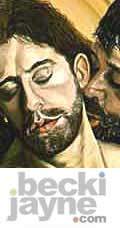
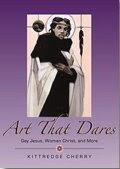
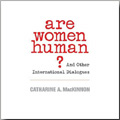
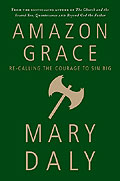
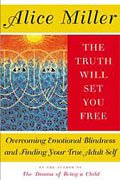


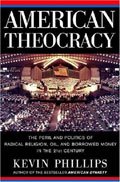





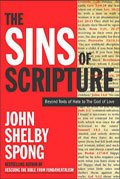

|